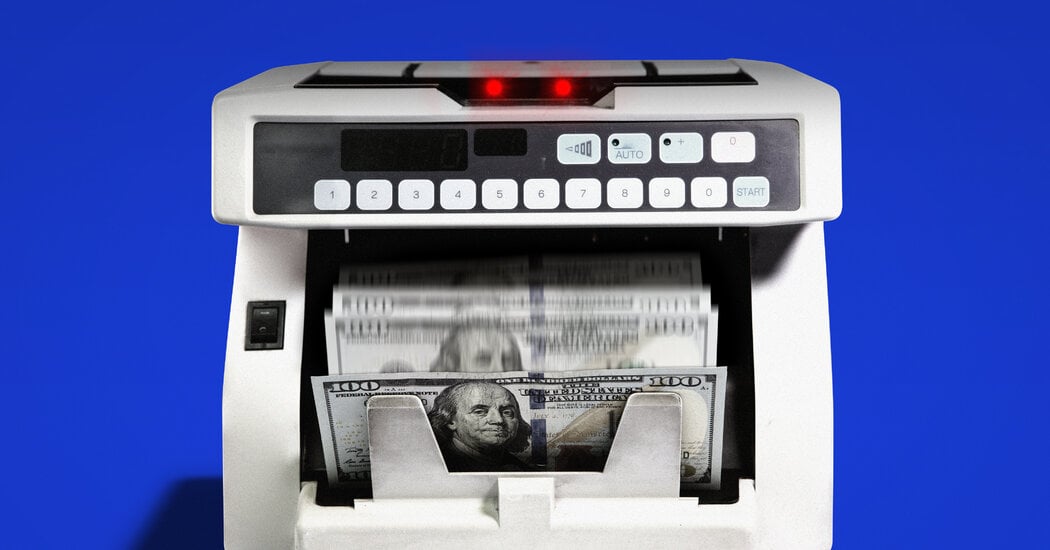- 4 Posts
- 47 Comments


You’re describing the best case scenario for the person wishing to protect their password, where the Planck Cruncher guesses the password on the very last possible combination, taking 100 years to get there.
The Planck Cruncher might guess the password correctly on the first try, or it might guess correctly on the last possible combination in 100 years.
What we really want to measure are the odds of a random guess being correct.
The most “realistic” scenario is the Planck Cruncher guessing correctly somewhere between 0 and 100 years, but you want to adjust the length of the password to be secure against a powerful attack during the realistic life of whatever system you’re trying to protect.
On average, assuming the rate of password testing is constant, it’ll take the Planck Cruncher 50 years to guess the 121 character password.
And that assumes the password never changes.
If the password is changed while the Planck Cruncher is doing its thing, and it changes to something that the PC has already guessed and tested negative, the PC is screwed.
Hint: Change your password regularly.edit: The user should change their password regularly during the attack.Each password change reduces the risk of a lucky guess by that many years of PC attack.
I love how mommy worm has big hair and cat eye glasses, not to mention how they’re sitting on chairs at a table.
JOY TO THE FISHES IN THE DEEP BLUE SEA


Oh good, then twatter can now become as successful as Truth social…
The Humpty Dumpty name pre-dates the image of an egg character that was created by Lewis Carroll’s Through The Looking Glass.
A popular theory says the rhyme may have originated by the story of a large cannon used by the Royalists in the English Civil War.
Humpty Dumpty was a term, probably with derogatory inferences, that was applied to large or oversized persons or objects.
The Humpty cannon allegedly fell off the wall that it was stationed upon, thanks to Parliamentary forces undermining it, and was severely damaged.
The falling cannon story became a metaphor for the Royalist leader, King Charles I, who was believed to be large sized himself. He lost the Civil war, and his head, therefore he proverbially “had a great fall”
Joe’s Classic Videogames is great and fun nostalgia about the insides of the classic arcade cabinets and pinball machines of yore.
Lots of insider information on how these things worked and what goes wrong with them, and satisfying play on the machines after they’ve been fixed!
If they haven’t been brushing their teeth and there’s visible calculus on them, you could use a metal pick and scrape it off like a dentist doing teeth cleaning, to show them how thick it is.
The hand near the face is oversized.


So they’re textualists until it applies to them…
“Engaged in insurrection” means exactly that.
It doesn’t mean they succeeded, it doesn’t mean they just thought about it, it certainly doesn’t say anything about an act of Congress.
He assembled the mob, and literally gave them their marching orders that January 6th.
If that isn’t worth at least a participation trophy, then I don’t know what is.
Which strip is to the left of Ziggy in the middle of the left bank of screens? Looks like something out of Five Nights At Freddy’s.
Also, Opus thinking “Is that a camera lens?”


There are plenty of crops that have to be tended and harvested by hand: Most green leafy vegetables for example.
This opens those fields to dual use alongside power generation, which might reduce agricultural use of fossil fuels, and provide shade for field workers which is especially dangerous with climate change raising heat levels.
I disagree somewhat.
A lot of high tech development comes with a greed motive, e.g. IPO, or getting bought out by a large company seeking to enter the space, e.g. Google buying Android, or Facebook buying Instagram and Oculus.
And conversely, a lot of open source software are copies of commercially successful products, albeit they only become widely adopted after the originals have entered the enshittified phase of their life.
Is there a Lemmy without Reddit? Is there a Mastodon without Twitter? Is there LibreOffice without Microsoft Office and decades of commercial word processors and spreadsheets before that? Or OpenOffice becoming enshittified for that matter? Is there qBittorrent without uTorrent enshittified? Is there postgreSQL without IBM’s DB2?
The exception that I can see is social media and networked services that require active network and server resources, like Facebook YouTube, or even Dropbox and Evernote.
Okay, The WELL is still around and is arguably the granddaddy of all online services, and has avoided enshittification, but it isn’t really open source.


Depends on what exactly each poll is asking or saying.
If you go by popular vote, Biden could be well ahead in that demographic.
But 1) Not all young people vote, andas a whole they lag far behind compared to other age groups, particularly ages 45+
And 2) The popular vote is greatly negated by the electoral college.
So If you want to become President, one way is to appeal to what old people in Red states can be persuaded to believe.


And it’s not just movies.
Hit song analysis systems like Platinum Blue, aka Music XRay, use algorithms to compare new songs to hit songs of the past to rate the chances that they will become hits themselves.
This is why all new songs sound the same and there are so many cover versions.
New songs are scored by hit song analysis system(s) and have to achieve a high score showing how much they resemble previous hit songs before money is allocated for promotion.


Enshittification doesn’t just happen to online platforms.


It’s been that way for a loooong time.
Movies became so expensive to produce that studios can’t finance them themselves.
So they turned to the banks.
Banks are by nature risk averse.
So a production company has to submit an application to their bank’s movie financing department like you would when applying for a home loan.
The bank decides whether to finance the movie based on the information submitted: Script, subject matter, director, which stars have committed to the project, etc.
Now if you imagine, people from the banking industry are not artists and creatives and visionaries. They just look at raw investment potential, i.e. Is this proposed production going to pay off the loan with interest?
If there’s any risk, e.g. this has never been done before, or there’s no recognizable franchise branding, or if something could be controversial in a meaningful way, the bank won’t approve the production loan.
So sequels, brand name franchises, with writing committees, are easier to get approvals from the banks, therefore are more likely to make it into production.
That’s why Hollywood doesn’t make daring, experimental, and controversial movies much anymore.


Avistaz has the a great selection for Chinese, Japanese, Korean, Indian, Thai, Hong Kong content.


The Internet version of QVC or Home Shopping Network that previous generations used to watch.






I understand what you’re saying, and that in the real world, bad security practices abound among average users who are likely to have passwords like “12345678” or “password”
But in this fictional scenario, my advice is directed at someone who has something valuable enough to protect behind a 121 character passphrase against a very determined adversary who has a Planck Cruncher at their disposal and is willing to run it for 100 years to crack that someone’s data.
A little extra security protocol might be worth the extra effort.
I can see how that would be unclear, and I apologize for the misunderstanding.